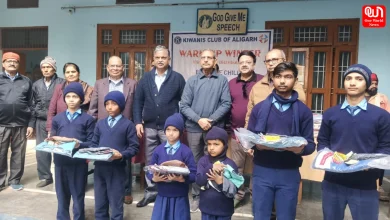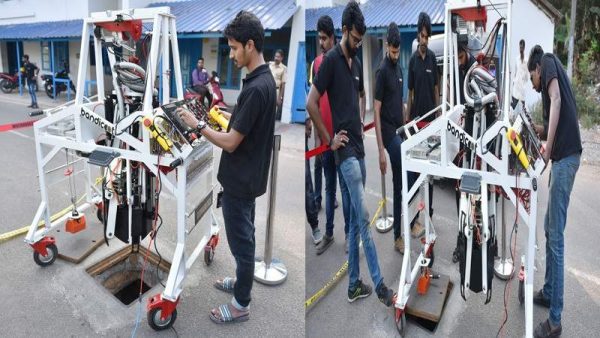Re-imagining Schools

“Half of the things we learnt 20 years ago is wrong today” Dr. Dennis Littky.
The Heritage School held a talk with Dr. Dennis Littky on the subject ‘Re-imagining Schools’ recently. The subject at the helm was how the education system, not only in India but across the world needs to be reformed. Dr. Dennis Littky is the Co-Founder of Big Picture Learning. The Director of the Heritage School, Manit Jain, was also present at the talk. Shweta RajpalKohli was the moderator of the talk.

Dr.Littky addressed a whole bunch of issues from the obstacles that are prevalent in the education sector which inhibits it to go on the path of reform, to the issue of how parents and teacher react to the new concept of learning.
When asked about who or what has been the toughest nut to crack for him in his journey, he said that he thought parents are one of the biggest obstacles as they think of education in a very conventional way. But he added, “It’s not experimenting. The way we talk about learning is how people learn. There is no research that says giving lectures and memorizing things are the way to learn.” He tries to get this across. For him the hardest was to fight against the other educationist. He said, “Because people in education feel that if my kind of education succeeds they are failing. Which is not the case. People try to make fun of us, put us down.”

Manit Jain, who has been on this journey for more than a decade with his Heritage School, not being just a conventional school, said that we have challenges on three levels. The first are the parents. Parents have been used to seeing certain evidences of learning, so when they not see filled in notebooks, when they don’t see their kids memorizing, they feel that their kid is not learning. The teachers are another challenge. He said that when they started out as a group of teacher, they as a group knew what they didn’t want to do. But not so much what they wanted to do. For the first three months he could only plan the things which could come in handy. Teachers are not ready to put in the extra effort. They are used to working 6 hours a day, dolling out lessons. So when they are told to plan something they become sceptics. Thirdly we are all lazy. We want maximum output with minimum input. We have to change that. Everyone has a sense of purpose and if people start working from there, they can be pulled out from their laziness.

Moving on with the talk, he came to the subject of content and how important they are? To this Dr.Littky said, “You can’t solve a problem if you don’t have content. You can find anything. What I care about the most is that you want to keep learning. You are going to want to learn. You are going to want to find content. For a science student, he needs to think like a scientist. Mr. Jain added to this by saying, “I am not against content. I am against the amount of content and the way we deal with the content. It’s so much in our DNA to skim through the content and not go deep into things. It is about going deep. The things you learn there are transferable in a different context. You have to create experts”
Dr.Littky then went to say that examination should be done away with or at least should not have the sole criteria for admission or judging a student. They play a role but they play too big a role. Mr. Manit then adds that people have a fear that if examinations are done away with then there will be no accountability. To this Dr.Littky says that nobody is setting accountability by passing those examinations. What we have to do is to evaluate students on their problem solving, how they are asking questions and how they work with others etcetera.

To the economics of the education,Dr.Littky says that he is operating in one of the poorest state in United States. Each city has different amounts of money.
In the end Dr.Littky says that for him the proudest moment of this lecture was when a kid went to him and said that he wanted to go to the United States for his further studies but now after the lecture he would stay in India and try to improve the state of education.







